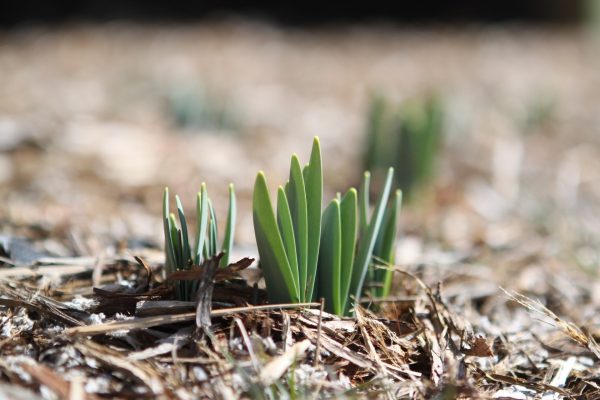The Inside Out Wisdom and Action Project, (IOWA Project), supports social change makers to integrate Jewish spiritual wisdom into their lives in order to bring their most grounded, visionary and creative selves to their leadership, making social justice activism a sustainable, transformative practice.
Transcript: Transcript: My name is Rabbi David Jaffe and I lead the Inside Out Wisdom and Action Project, or the IOWA Project, which brings Jewish spirituality to people working for social change.
The practice I want to share today is something called “Finding Good Points” and it is a central practice of Rabbi Nachman of Breslov, who was one of the great Chasidic masters, died in 1810 in the Ukraine. And the practice is to make it really a daily practice of finding the good in oneself and in other people. And “good points” can be anything from small ways that you may have helped people to just something essential about your humanity. And the practice is especially helpful if you find other people difficult or someone difficult, or if you feel very self-critical, it is an especially important practice. According to Breslov tradition Moses, Moshe Rabenu, was an expert in seeing the good points in each of the Israelites and used these good points to build the Mishkan, the Holy Tabernacle, in the desert. And also the cantor, or the song leader, in the synagogue looks around and finds good points and collects them metaphorically and makes a song out of them. Those are both traditions within Breslov.
So the practice, what we do at IOWA is that we have a practice of starting workshops, retreats or meetings using this practice. And so you say you have a group of about 8-10-12 people. You would share the teaching that I just taught and then give a couple of minutes for people to look around the room, look at the people in then meeting with them, and find the good point in each other. Don’t say anything, just thinking now, but looking around the room and finding the good points in each person. Then go around the room, again, it works with 8-12 people or smaller, go around the room, and have people say one good point to the person to their right. Then move to the left, and so the person who just said the good point gets to hear it from someone else. What happens at the end of this is you have such a positive energy that’s there in the room and then you’ll end with a song, which I will get to in a little bit.
What I want to do is actually walk you through the practice, as an individual, of what it means to find a good point in oneself, and actually do this practice with you in a guided meditation, so you’ll really get a sense of what this is and then when you are with a group, you will do a more basic form of it.
Let’s sit quietly for a moment
Just relax your body, relax yourself into the chair where you are.
Think back to your day, or it could be the past couple of days and notice, find something about yourself that really moves you, that really feels like, “Yeah, I am glad I did that, that is something I can really be proud about.”
These are, unfortunately, not so easy to find even though they might be easy for other people to see in you. It is really a practice to be able to do this in ourselves. I am going to give you another few moments, just sit quietly, really think back, look back. What is either something you did, an interaction you had, or something you really know about yourself. When you can get your mind on that thing, you can feel an awakening, feel some movement in your body, in your arms, in your heart, feel some joy about that.
If you need some more time you can stop the recording.
Here the next step is to notice, is any critical voice that comes in around that good point that you just found? So for example say, it’s something like, I really spent time with my child the other day helping my them with their homework and was really useful and helpful to them. And that came out of love, that I was able to do that.
Is there any critical voice or judgement that came in there? You want to name that. So say there is a voice that comes in that, “I just did that because it’s important for me that they get good grades,” or something like that.
Rebbe Nachman teaches us that those voices are always going to come in. The next step is, even with that judgemental voice, to keep finding the good point in there, something that is even purely good in there. So for example, in my example, what is purely good is how much I love my son, and I just want the best for him. So to sit with him while he does his homework, or to help him, is really coming from that place that is just purely about love for me. Just sit with that, and let that see the impact in your body. Let’s sit quietly again, if there is a judgmental voice there, name it, and just find what is purely good in there.
And again, if you need more time, you can stop the recording and take more time.
The final step, and this is the final step for both the group, but also the individual. Once you find that good point, and you can feel it in you, it moves us to song. Rebbe Nachman quotes from Psalms where he says Ah zim rah li’olay bi’odi, “I sing to God with the good that is in me.”
So we are moved to song. So the last step in this is singing. So invite you to, if there is a particular melody or song that you love, to move into that. For me this is one that I often use at the end of my practice, this is an old song from the Breslov Chassidim.
Rabbi David Jaffe sings niggun.
You can go on with that. You end with a song. If you are with a group, you move on. Now you move into your meeting. There is a beautiful, positive connective energy that you are moving into your meeting with. As an individual, you move on with your day and then you try it again the next day.
So thank you and please let me know questions, you can find me on the website for Reset. Thank you.
 Rabbi David Jaffe is the founder of the Kirva Institute and leads the Inside Out Wisdom and Action Project. He is the author of Changing the World from the Inside Out: A Jewish Approach to Personal and Social Change, which won the National Jewish Book Award for Contemporary Jewish life. His teaching, writing, organizing and consulting explore the intersection of moral and spiritual development and ethical action in the world. He teaches Mussar (applied Jewish ethics) and Jewish spiritual wisdom widely throughout North America with organizational and social change leaders, educators and spiritual seekers of all ages.
Rabbi David Jaffe is the founder of the Kirva Institute and leads the Inside Out Wisdom and Action Project. He is the author of Changing the World from the Inside Out: A Jewish Approach to Personal and Social Change, which won the National Jewish Book Award for Contemporary Jewish life. His teaching, writing, organizing and consulting explore the intersection of moral and spiritual development and ethical action in the world. He teaches Mussar (applied Jewish ethics) and Jewish spiritual wisdom widely throughout North America with organizational and social change leaders, educators and spiritual seekers of all ages.
David was a founding board member of Avodah: The Jewish Service Corps and helped start the Greater Boston Interfaith Organization, an IAF affiliate. He has a masters in social work from Columbia University and private rabbinic ordination from Israel. He is a senior faculty member with the Mussar Institute, a visiting research fellow at Boston University and adjunct faculty at the Hebrew College Rabbinical School. David serves on the Board of Directors of the Brockton Interfaith Community and lives in Sharon, MA with his partner, Janette and two teenage boys.











